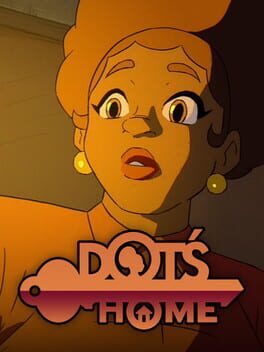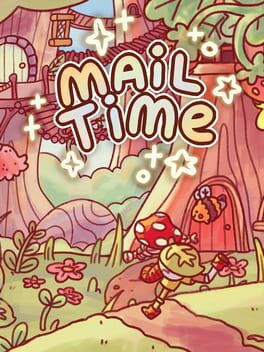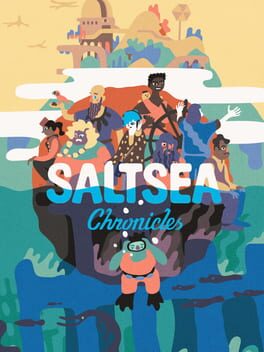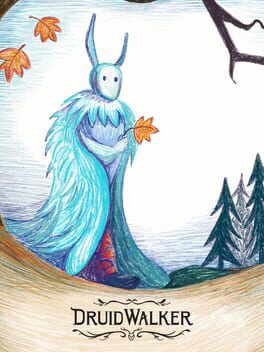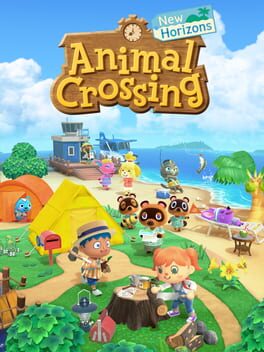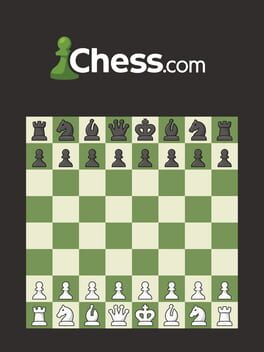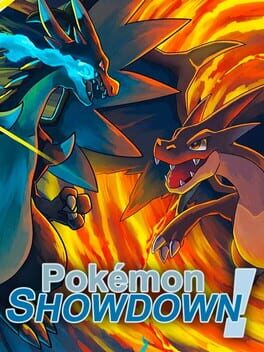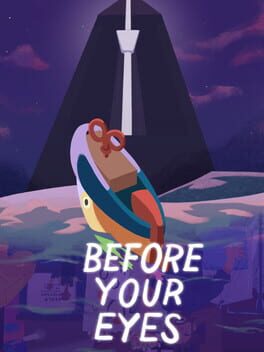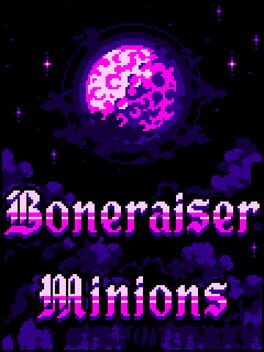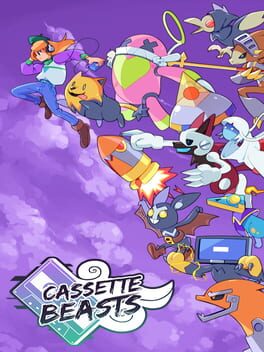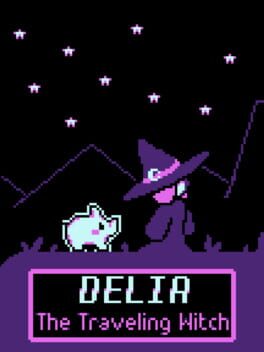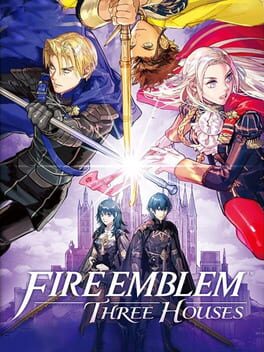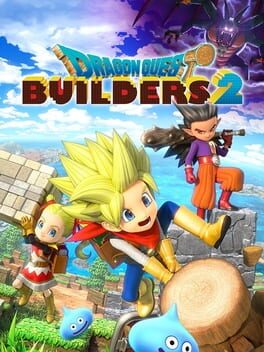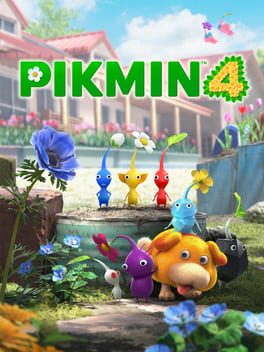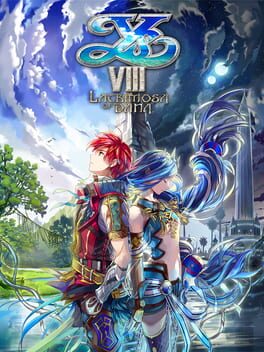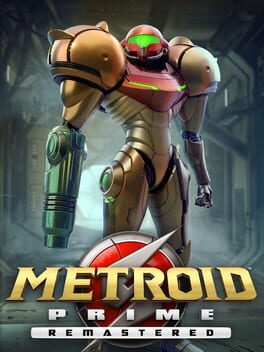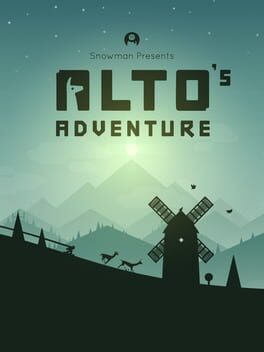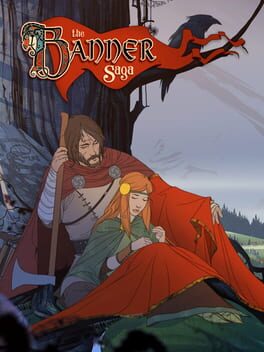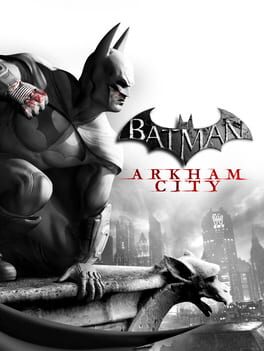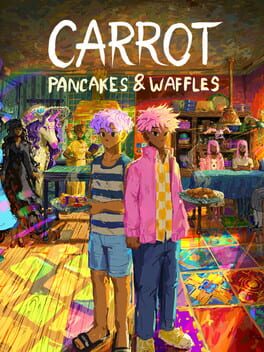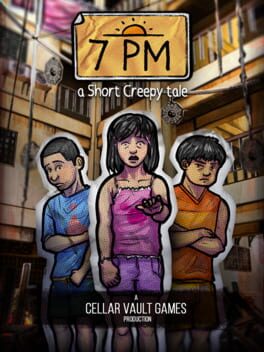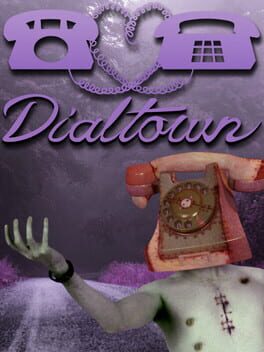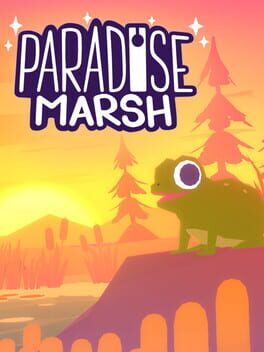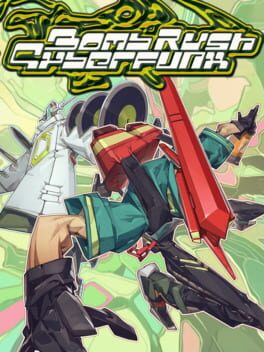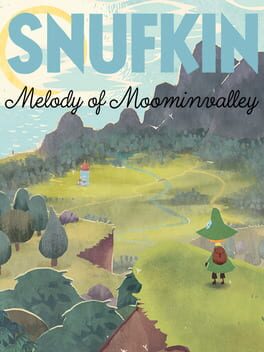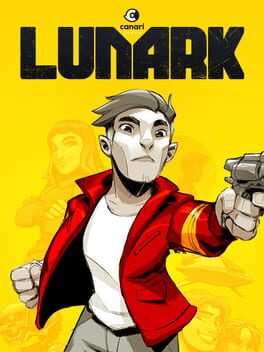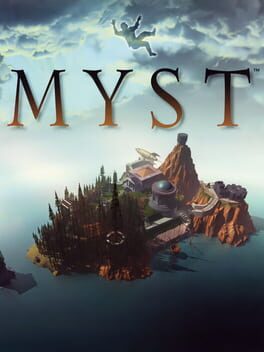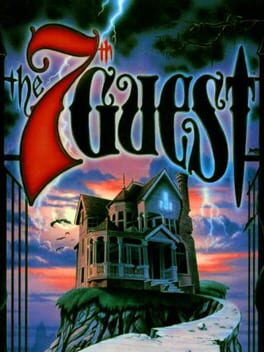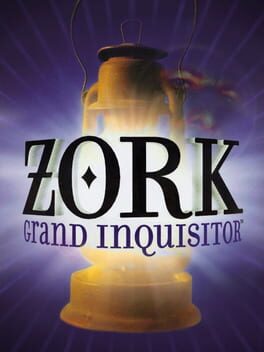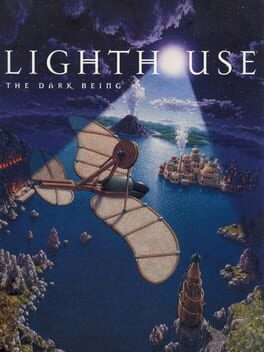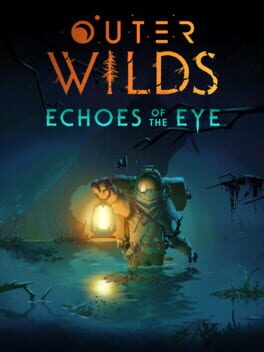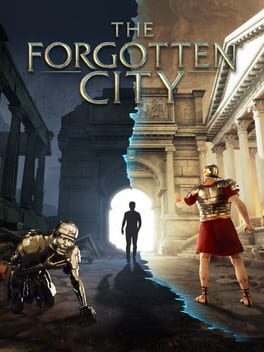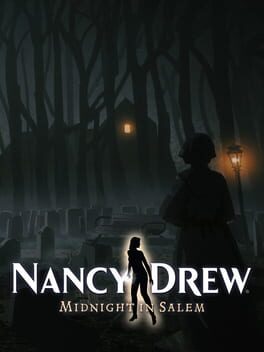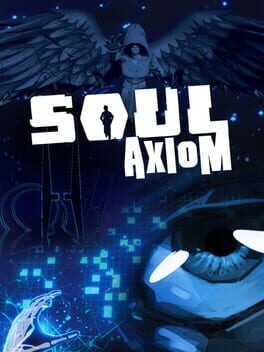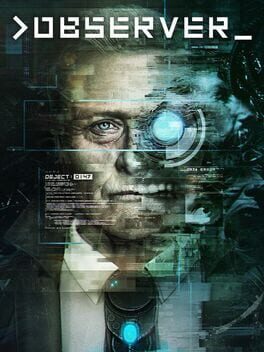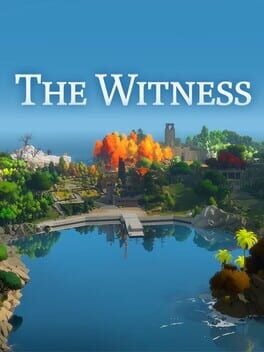nightjasmine
72 reviews liked by nightjasmine
Dot's Home
2021
A short, inspirational point-and-click adventure game with some important things to say.
Many problems seem (and are) too big to be influenced and fixed when we are isolated. One may feel it's all they can manage, only to fend for themself or their family. When we get involved with and build our community, we create a supportive network that's there when any of us needs it. The same problems that are too much in isolation can suddenly become surmountable. And I mean, it simply feels better, doesn't it?
Many problems seem (and are) too big to be influenced and fixed when we are isolated. One may feel it's all they can manage, only to fend for themself or their family. When we get involved with and build our community, we create a supportive network that's there when any of us needs it. The same problems that are too much in isolation can suddenly become surmountable. And I mean, it simply feels better, doesn't it?
Mail Time
2023
I spent a really nice day with this! What a cute, silly, and pleasantly queer game. Jumping and gliding around is pretty nice, but what I most loved was the fun dialogue and endearing little characters (including the artwork for them). The game isn't long enough to give the characters' relationships with one another a whole lot of depth, but to me, the feeling of a silly little neighborhood community was successfully crafted. Feels a heck of a lot warmer and more human than most IRL spaces I've been exposed to these days (yikes).
It's a fantastic helping others simulator. Gotta love spending real time † helping fake people haha. It's not really a complaint, but I wish it were a longer game so I'd have more incentive to make regular returns to Grumblewood Grove.
Mail Time was pleasant and chill almost all of the way through, although I did get frustrated for a bit due to some navigational difficulties. A map might have been helpful, but there's also something to be said for exploring the open space without one.
It has cute character customization, with a sufficient level of complexity.
Optional ungendered pronouns for the player character, and the inclusion of numerous other characters that go by gender-neutral pronouns — and even combinations of multiple pronoun sets — are still relatively rare in video games (especially that same-sentence alternation! Entropic Float might be the only other game in which I've seen that). Both are present here, helping me to feel immersed and as though this world was crafted for my enjoyment too.
It's still a little buggy (as in, programming bugs... but yeah, also actual bugs, wee~) in places (particularly the very ending scene). And on two occasions, I had the misfortune of getting trapped between mushrooms the player character can bounce on... Just rapidly bouncing between them with no way out (other than exiting the game without saving). Decidedly the least fun part of the game LOL.
The developers seem like they're actively fixing stuff, though.
All of this considered, it was definitely a worthwhile time for me~ And if you enjoy the comedic style of Frog Detective and/or Purrgatory, you may similarly enjoy this (I did).
† time is an illusion
(Functions well on Steam Deck. Sometimes the game became unresponsive after manually closing the virtual keyboard -- it's better to use in-game controls to proceed after entering the text for the player character's name. Played mostly docked with a controller.)
It's a fantastic helping others simulator. Gotta love spending real time † helping fake people haha. It's not really a complaint, but I wish it were a longer game so I'd have more incentive to make regular returns to Grumblewood Grove.
Mail Time was pleasant and chill almost all of the way through, although I did get frustrated for a bit due to some navigational difficulties. A map might have been helpful, but there's also something to be said for exploring the open space without one.
It has cute character customization, with a sufficient level of complexity.
Optional ungendered pronouns for the player character, and the inclusion of numerous other characters that go by gender-neutral pronouns — and even combinations of multiple pronoun sets — are still relatively rare in video games (especially that same-sentence alternation! Entropic Float might be the only other game in which I've seen that). Both are present here, helping me to feel immersed and as though this world was crafted for my enjoyment too.
It's still a little buggy (as in, programming bugs... but yeah, also actual bugs, wee~) in places (particularly the very ending scene). And on two occasions, I had the misfortune of getting trapped between mushrooms the player character can bounce on... Just rapidly bouncing between them with no way out (other than exiting the game without saving). Decidedly the least fun part of the game LOL.
The developers seem like they're actively fixing stuff, though.
All of this considered, it was definitely a worthwhile time for me~ And if you enjoy the comedic style of Frog Detective and/or Purrgatory, you may similarly enjoy this (I did).
† time is an illusion
(Functions well on Steam Deck. Sometimes the game became unresponsive after manually closing the virtual keyboard -- it's better to use in-game controls to proceed after entering the text for the player character's name. Played mostly docked with a controller.)
The Immaculate Drag
2022
The Immaculate Drag pulls you right into the melancholy of walking through a night city street with a hazy goal and a chance to meet like-minded souls. Most of them are out in the streets to take a breather, much like yourself, and next morning every encounter with them might seem like a distant dream, disconnected from a blazing sun of reality. Sometimes it's a reminder that you're not alone in your worries and painful memories, and sometimes it's a whole new perspective given as a casual remark from a total stranger that you're bound to never meet again. Same as this very night when you're out in the streets to move at your own pace towards the dawn is to never repeat again. Existing only here and now, flowing between every step and inevitably taking you closer to your next immaculate drag that might as well be the last.
I can't help but feel it was heavily inspired by El invierno en Lisboa (Winter In Lisbon) written by Antonio Muñoz Molina. It has the distinct smoky, jazzy, desperate love story vibe that dominates both the book and the game.
I can't help but feel it was heavily inspired by El invierno en Lisboa (Winter In Lisbon) written by Antonio Muñoz Molina. It has the distinct smoky, jazzy, desperate love story vibe that dominates both the book and the game.
Mail Time
2023
You play as a mail scout in training (choose their name, appearance, and pronouns) as they're about to make their first delivery! Post Master Janet gives you a letter for Greg, but no information on where to find him. Now, it's up to you to talk to the other forest residents, help them with their tasks, and find the mysterious Greg.
Visuals
Mail Time is the coziest looking 3D game. The colors are soft and relaxing, nothing is ever too bright or too dark or too flashy. It's not dull though! There's always something pretty too look at. It's not super detailed, but everything looks the way you'd expect it to look. The animal friends are all super cute, although it is a bit strange how they just stand there staring blankly into the void. The player character is the cutest thing in the world and much more expressive.
The character sprites for the dialogue are super duper cute, and I loved their expressions and they talk to your mail scout.
Sound Effects + Music
The background music is very chill and calm. I mostly forgot it was even there as I was playing, which tells me it never got annoying or repetitive. But that also means it didn't really stand out either. It was just a nice accompaniment for the gameplay.
Gameplay + Controls
Mail Time is mainly an exploration game with some platforming and a lot of fetch quests. You go around the forest to find all of the animal friends, talk to them, and deliver letters to wherever they need to go. You also need to find some items for them and complete collections. It's all very straight forward, but I never got bored with it. Especially, since the game is so short.
The controls are find. I played on PC, using an Xbox controller. You simply move around with the Left stick, adjust the camera with the Right stick, interact with B, and jump/glide with A. Jumping is a little floaty, but precision really isn't an issue here. There were plenty of times when I landed floating on the side of something instead of missing.
I only experienced two glitches during my playthrough. Both of them were my mail scout couldn't move after talking to a resident. I just opened my journal, closed it, and got back control.
Replayability
Mail Time is just about 2 hours long, depending on how much exploring and collecting you do, so it's a quick game to play multiple times if you want to. There are missable achievements that you may have to replay the game to get. I missed four, so I may go back some day to get them.
Overall
I absolutely adored Mail Time. It's just the cozy game that I hoped it would be! I loved getting to know all of the forest critters a bit, and it just made me smile.
Visuals
Mail Time is the coziest looking 3D game. The colors are soft and relaxing, nothing is ever too bright or too dark or too flashy. It's not dull though! There's always something pretty too look at. It's not super detailed, but everything looks the way you'd expect it to look. The animal friends are all super cute, although it is a bit strange how they just stand there staring blankly into the void. The player character is the cutest thing in the world and much more expressive.
The character sprites for the dialogue are super duper cute, and I loved their expressions and they talk to your mail scout.
Sound Effects + Music
The background music is very chill and calm. I mostly forgot it was even there as I was playing, which tells me it never got annoying or repetitive. But that also means it didn't really stand out either. It was just a nice accompaniment for the gameplay.
Gameplay + Controls
Mail Time is mainly an exploration game with some platforming and a lot of fetch quests. You go around the forest to find all of the animal friends, talk to them, and deliver letters to wherever they need to go. You also need to find some items for them and complete collections. It's all very straight forward, but I never got bored with it. Especially, since the game is so short.
The controls are find. I played on PC, using an Xbox controller. You simply move around with the Left stick, adjust the camera with the Right stick, interact with B, and jump/glide with A. Jumping is a little floaty, but precision really isn't an issue here. There were plenty of times when I landed floating on the side of something instead of missing.
I only experienced two glitches during my playthrough. Both of them were my mail scout couldn't move after talking to a resident. I just opened my journal, closed it, and got back control.
Replayability
Mail Time is just about 2 hours long, depending on how much exploring and collecting you do, so it's a quick game to play multiple times if you want to. There are missable achievements that you may have to replay the game to get. I missed four, so I may go back some day to get them.
Overall
I absolutely adored Mail Time. It's just the cozy game that I hoped it would be! I loved getting to know all of the forest critters a bit, and it just made me smile.
'Three years had passed. Five years had passed, and still the trees remained with their roots spread out on the bottom of the water. It looked almost as if they were still alive now. Ohina thought to herself; in those days my legs were still strong. My eyes could still see far.'
– Michiko Ishimure, Tenko, 1997 (tr. Bruce Allen).
The post-war years in Japan were accompanied by an ideological shift in the ideas of work and family, with the development of the sarariiman myth. The ideal household, promoted by the Japanese government, was one in which the wife took care of the housework and the children's education, while the husband provided for the family's economic needs. This dream was made possible by the employment conditions of the 1960s and 1970s, when the average worker could expect to spend their entire career with the same company. Representations of the Japanese sarariiman have largely evolved over time, making him both an archetype of ideal masculinity through his loyalty to his employer and his sacrifice for his family (kigyō senshi, corporate warrior). At the same time, other representations emphasise his submissiveness, in line with the westernisation of Japanese culture [1].
And every morning the door closes
The collapse of the economic bubble in the 1990s shattered this ideal, weakening the labour market and the salaried middle class [2]. The destruction of this family harmony, based on a patriarchal concept of sacrifice, led to the dysfunction of Japanese households and the gradual disappearance of fathers from the family unit. The generation born after the 1970s had no memory of the economic miracle of previous decades and found themselves thrust into a world where inequalities were apparent from school and career prospects were mediocre at best. Authority figures were viewed with suspicion and contempt, including the government, teachers and parents. They are said to have failed in their role as guardians: teachers are portrayed as incompetent or murderers, politicians as indifferent to misery and colluding to steal public money, while fathers resign and mothers weep at their powerlessness [3].
The destruction of traditional masculinity, which is still struggling to build a new mythology, has been followed by a reassessment of the place of women, who are regarded as the driving force for Japan's economic recovery and the bulwark against demographic decline. Unsurprisingly, Shinzo Abe's economic programme has focused heavily on the role of women, both as workers and as mothers. Yet Abenomics have failed to transform the labour market environment: government coalitions have been largely conservative, and measures for women have been anemic at best [4]. What remains is a vain discourse to encourage reproduction – despite the economic conditions hardly being met for raising a child – which is reflected in cultural production.
Undoing ikumen in post-Abe Japan
The overrepresentation of motherhood, however, should not obscure the transformations of fatherhood in the 2000s and 2010s. Xenoblade Chronicles 3: Future Redeemed is a striking example as it deals directly with this issue, whereas the original game looked at the question of reproduction and family in a broader way [5]. The heroes of the first two games return, each embodying a different vision of masculinity. Shulk retains his candour while appearing more calm and disciplined. He represents a self-controlled masculinity driven by both elegance and intellect, in the style of the erudite warriors of pre-modern Asia. Rex is much rougher, constantly struggling to find a way to express his feelings and frustrations, despite his good intentions. In some ways, his development is reminiscent of that of Ryōta Nonomiya in Hirokazu Kore-eda's Soshite chichi ni naru (2013), an architect who is unable to provide emotional comfort to his family. Confronted with the way Shulk interacts with Nikol, Rex finds a new harmony with Glimmer, full of empathy and love.
Perhaps the most important aspect of these relationships is that their nature remains implicit. Many of the reminiscent and contemplative passages in Future Redeemed rely on knowledge of the franchise, but the theme of fatherhood runs throughout the DLC. Ultimately, the heroes' distance from their children is a response to the debates surrounding ikumen, a term used to describe fathers who are involved in raising their children in order to make them appear 'cool'. The ideological programme of Abe's Japan relied heavily on this imaginary to encourage fathers to participate in the household, but the figure of the ikumen has been widely criticised for giving men a nice label, even though they contribute to the dysfunction of both the domestic economy and their working environment [6].
The figure of the ikumen can be understood as a way for fathers to make themselves useful somewhere and gain recognition from their peers, a way to find a place to belong (ibasho) after being ejected from both the family unit and the corporate space. Future Redeemed responds to this sociological question in the same way as several local associations have done, through the figure of the ikimen, men who decide to foster communities of solidarity in the same way that they would look after their children [7]. Shulk and Rex, thanks to their experience, become the tutelary figures of the Liberators and Colony 9, but they are more interested in being mentors than leaders. Like the base game, Future Redeemed focuses on building bonds between the various members of the community until their resilience is no longer in doubt. As the various characters point out to Matthew, the virtue of a leader is to bring people together when necessary, not to control their lives. Through the various side-quests, the inhabitants of Colony 9 also gain texture and individuality, autonomy and confidence – more so than in the base game, thanks to a sparser cast.
Maybe tomorrow
There is an optimistic melancholy to Future Redeemed, between the series' various iconic locations reduced to lonely ruins and the forward-looking language of the characters. Like Tetsuya Takahashi's other games, the DLC shines by magnifying the ties that bind individuals, variations on the theme of friendship, love and togetherness – lessons that must be carried beyond the game. A single existence is but a drop in the ocean of human history. Civilisations, buildings, masterpieces, passions, dreams and memories can vanish in an instant, but there remains an explicit duty to cherish the past, not in blind adoration, but in preparation for the future. Future Redeemed constantly refuses to elevate Shulk and Rex onto a pedestal: they are already fading figures, as their injuries attest. Even A, for all her unwavering calm and penetrating gaze, chooses to remain outside the life that Colony 9 and the Liberators have decided to cherish; not because she is without compassion for the survivors, but because she knows – and this is her legacy – that the future belongs to them alone.
As Xeno veterans know, every story has an ending, and not all sequels need to be told. Looking back at Lost Jerusalem and thinking about building a better world is poignant, but this is the everyday story. Fighting for a fairer and more humane world. It may take generations, but the important thing is to keep dreaming and struggling for it, because there is nothing more tragic than an existence without hope, even when darkness seems to engulf everything. Of course, there is something idealistic and simplistic about this statement, but Future Redeemed, like the base game Xenogears (1998) or Xenosaga (2002-2006), leaves room for misery and sadness. Inequality is part of every society, and Takahashi has no illusions about the ghosts that will always roam the Rhadamanthus of the future. This is how Future Redeemed concludes the epic of the Xenoblade Chronicles, just as Episode III: Also sprach Zarathustra (2006) invited one to close their eyes for a while, until the light of hope reappears, maybe tomorrow. In a way, Future Redeemed is just an open door. Its more meticulous progression with Affinity Points, its more fluid exploration thanks to numerous ergonomic additions, and its gameplay designed around accessories rather than classes all point to rich ideas for Monolith Soft's next projects.
I may still be around to see what paths they take.
Maybe I won't.
I will sleep a while, until the dawn wakes me up again...
I still believe... come what may...
__________
[1] Annette Schad-Seifert, 'Samurai and Sarariiman: The Discourse on Masculinity in Modern Japan', in Arne Holzhausen (ed.), Can Japan Globalize? Studies on Japan's Changing Political Economy and the Process of Globalization, Springer, Berlin, 2001, pp. 206-208.
[2] Some contextual details are provided in my reviews of Kaze no NOTAM (1997) and Power Shovel (1999).
[3] This is a rather simplified picture of the cultural representations of the 1990s and 2000s, but they occupy an important part of successful audiovisual production in Japan. On the topic, see Shuk-ting Kinnia Yau, 'Bad Father and Good Mother: The Changing Image of Masculinity in Post-Bubble-Economy Japan', in David G. Hebert (ed.), International Perspectives on Translation, Education and Innovation in Japanese and Korean Societies, Springer, New York, 2018, pp. 243-253.
[4] Mark Crawford, 'Abe’s Womenomics Policy, 2013-2020: Tokenism, Gradualism, or Failed Strategy?', in The Asia-Pacific Journal, vol. 19, no. 4-4, 2021.
[5] On the topic, see my review of Xenoblade Chronicles 3 (2022).
[6] In particular, wives and employers are very suspicious of the ikumen modoki, the father who prides himself on being involved in running the household and bringing up the children, but in reality makes no effort at all. He builds a positive image of himself on his wife's efforts and uses the household as an excuse to shirk his professional responsibilities. The yarisugi ikumen, the man who is overly proactive in his domestic involvement, is equally feared by women, both because he often disrupts household routines and wastes time, unnecessarily burdening his spouse with additional work. On the topic, see Nicholas Michael Feinig, Rearing the Family, Moving Society: Rethinking Gender, Kinship, and Work through Japan’s Fathering Movement, PhD thesis, University of Toronto, 2020, pp. 99-134.
[7] This figure is also subject to specific criticisms, notably the contamination of spaces intended for women by a corporatist and hierarchical masculinity, and the fact that these groups are more places for fathers to socialise than spaces for improving local community life; nevertheless, they are a new ibasho for men, outside the workplace. On the topic, see Nicholas Michael Feinig, op. cit., pp. 230-276.
– Michiko Ishimure, Tenko, 1997 (tr. Bruce Allen).
The post-war years in Japan were accompanied by an ideological shift in the ideas of work and family, with the development of the sarariiman myth. The ideal household, promoted by the Japanese government, was one in which the wife took care of the housework and the children's education, while the husband provided for the family's economic needs. This dream was made possible by the employment conditions of the 1960s and 1970s, when the average worker could expect to spend their entire career with the same company. Representations of the Japanese sarariiman have largely evolved over time, making him both an archetype of ideal masculinity through his loyalty to his employer and his sacrifice for his family (kigyō senshi, corporate warrior). At the same time, other representations emphasise his submissiveness, in line with the westernisation of Japanese culture [1].
And every morning the door closes
The collapse of the economic bubble in the 1990s shattered this ideal, weakening the labour market and the salaried middle class [2]. The destruction of this family harmony, based on a patriarchal concept of sacrifice, led to the dysfunction of Japanese households and the gradual disappearance of fathers from the family unit. The generation born after the 1970s had no memory of the economic miracle of previous decades and found themselves thrust into a world where inequalities were apparent from school and career prospects were mediocre at best. Authority figures were viewed with suspicion and contempt, including the government, teachers and parents. They are said to have failed in their role as guardians: teachers are portrayed as incompetent or murderers, politicians as indifferent to misery and colluding to steal public money, while fathers resign and mothers weep at their powerlessness [3].
The destruction of traditional masculinity, which is still struggling to build a new mythology, has been followed by a reassessment of the place of women, who are regarded as the driving force for Japan's economic recovery and the bulwark against demographic decline. Unsurprisingly, Shinzo Abe's economic programme has focused heavily on the role of women, both as workers and as mothers. Yet Abenomics have failed to transform the labour market environment: government coalitions have been largely conservative, and measures for women have been anemic at best [4]. What remains is a vain discourse to encourage reproduction – despite the economic conditions hardly being met for raising a child – which is reflected in cultural production.
Undoing ikumen in post-Abe Japan
The overrepresentation of motherhood, however, should not obscure the transformations of fatherhood in the 2000s and 2010s. Xenoblade Chronicles 3: Future Redeemed is a striking example as it deals directly with this issue, whereas the original game looked at the question of reproduction and family in a broader way [5]. The heroes of the first two games return, each embodying a different vision of masculinity. Shulk retains his candour while appearing more calm and disciplined. He represents a self-controlled masculinity driven by both elegance and intellect, in the style of the erudite warriors of pre-modern Asia. Rex is much rougher, constantly struggling to find a way to express his feelings and frustrations, despite his good intentions. In some ways, his development is reminiscent of that of Ryōta Nonomiya in Hirokazu Kore-eda's Soshite chichi ni naru (2013), an architect who is unable to provide emotional comfort to his family. Confronted with the way Shulk interacts with Nikol, Rex finds a new harmony with Glimmer, full of empathy and love.
Perhaps the most important aspect of these relationships is that their nature remains implicit. Many of the reminiscent and contemplative passages in Future Redeemed rely on knowledge of the franchise, but the theme of fatherhood runs throughout the DLC. Ultimately, the heroes' distance from their children is a response to the debates surrounding ikumen, a term used to describe fathers who are involved in raising their children in order to make them appear 'cool'. The ideological programme of Abe's Japan relied heavily on this imaginary to encourage fathers to participate in the household, but the figure of the ikumen has been widely criticised for giving men a nice label, even though they contribute to the dysfunction of both the domestic economy and their working environment [6].
The figure of the ikumen can be understood as a way for fathers to make themselves useful somewhere and gain recognition from their peers, a way to find a place to belong (ibasho) after being ejected from both the family unit and the corporate space. Future Redeemed responds to this sociological question in the same way as several local associations have done, through the figure of the ikimen, men who decide to foster communities of solidarity in the same way that they would look after their children [7]. Shulk and Rex, thanks to their experience, become the tutelary figures of the Liberators and Colony 9, but they are more interested in being mentors than leaders. Like the base game, Future Redeemed focuses on building bonds between the various members of the community until their resilience is no longer in doubt. As the various characters point out to Matthew, the virtue of a leader is to bring people together when necessary, not to control their lives. Through the various side-quests, the inhabitants of Colony 9 also gain texture and individuality, autonomy and confidence – more so than in the base game, thanks to a sparser cast.
Maybe tomorrow
There is an optimistic melancholy to Future Redeemed, between the series' various iconic locations reduced to lonely ruins and the forward-looking language of the characters. Like Tetsuya Takahashi's other games, the DLC shines by magnifying the ties that bind individuals, variations on the theme of friendship, love and togetherness – lessons that must be carried beyond the game. A single existence is but a drop in the ocean of human history. Civilisations, buildings, masterpieces, passions, dreams and memories can vanish in an instant, but there remains an explicit duty to cherish the past, not in blind adoration, but in preparation for the future. Future Redeemed constantly refuses to elevate Shulk and Rex onto a pedestal: they are already fading figures, as their injuries attest. Even A, for all her unwavering calm and penetrating gaze, chooses to remain outside the life that Colony 9 and the Liberators have decided to cherish; not because she is without compassion for the survivors, but because she knows – and this is her legacy – that the future belongs to them alone.
As Xeno veterans know, every story has an ending, and not all sequels need to be told. Looking back at Lost Jerusalem and thinking about building a better world is poignant, but this is the everyday story. Fighting for a fairer and more humane world. It may take generations, but the important thing is to keep dreaming and struggling for it, because there is nothing more tragic than an existence without hope, even when darkness seems to engulf everything. Of course, there is something idealistic and simplistic about this statement, but Future Redeemed, like the base game Xenogears (1998) or Xenosaga (2002-2006), leaves room for misery and sadness. Inequality is part of every society, and Takahashi has no illusions about the ghosts that will always roam the Rhadamanthus of the future. This is how Future Redeemed concludes the epic of the Xenoblade Chronicles, just as Episode III: Also sprach Zarathustra (2006) invited one to close their eyes for a while, until the light of hope reappears, maybe tomorrow. In a way, Future Redeemed is just an open door. Its more meticulous progression with Affinity Points, its more fluid exploration thanks to numerous ergonomic additions, and its gameplay designed around accessories rather than classes all point to rich ideas for Monolith Soft's next projects.
I may still be around to see what paths they take.
Maybe I won't.
I will sleep a while, until the dawn wakes me up again...
I still believe... come what may...
__________
[1] Annette Schad-Seifert, 'Samurai and Sarariiman: The Discourse on Masculinity in Modern Japan', in Arne Holzhausen (ed.), Can Japan Globalize? Studies on Japan's Changing Political Economy and the Process of Globalization, Springer, Berlin, 2001, pp. 206-208.
[2] Some contextual details are provided in my reviews of Kaze no NOTAM (1997) and Power Shovel (1999).
[3] This is a rather simplified picture of the cultural representations of the 1990s and 2000s, but they occupy an important part of successful audiovisual production in Japan. On the topic, see Shuk-ting Kinnia Yau, 'Bad Father and Good Mother: The Changing Image of Masculinity in Post-Bubble-Economy Japan', in David G. Hebert (ed.), International Perspectives on Translation, Education and Innovation in Japanese and Korean Societies, Springer, New York, 2018, pp. 243-253.
[4] Mark Crawford, 'Abe’s Womenomics Policy, 2013-2020: Tokenism, Gradualism, or Failed Strategy?', in The Asia-Pacific Journal, vol. 19, no. 4-4, 2021.
[5] On the topic, see my review of Xenoblade Chronicles 3 (2022).
[6] In particular, wives and employers are very suspicious of the ikumen modoki, the father who prides himself on being involved in running the household and bringing up the children, but in reality makes no effort at all. He builds a positive image of himself on his wife's efforts and uses the household as an excuse to shirk his professional responsibilities. The yarisugi ikumen, the man who is overly proactive in his domestic involvement, is equally feared by women, both because he often disrupts household routines and wastes time, unnecessarily burdening his spouse with additional work. On the topic, see Nicholas Michael Feinig, Rearing the Family, Moving Society: Rethinking Gender, Kinship, and Work through Japan’s Fathering Movement, PhD thesis, University of Toronto, 2020, pp. 99-134.
[7] This figure is also subject to specific criticisms, notably the contamination of spaces intended for women by a corporatist and hierarchical masculinity, and the fact that these groups are more places for fathers to socialise than spaces for improving local community life; nevertheless, they are a new ibasho for men, outside the workplace. On the topic, see Nicholas Michael Feinig, op. cit., pp. 230-276.
Saltsea Chronicles
2023
I played mutazione, an earlier game of this developer's, a couple years back, and enjoyed it. aspects of the gameplay somewhat often dragged that experience down, but unmistakeable in the game was an abundance of creativity and heart. so when I saw that Die Gute Fabrik had released another bright, intriguing game with an intriguing cast of characters, I decided to lead gut first and check it out, with minimal pre-research
and I am so delighted I did! I loved this experience
to start, the art design is exceptional. lush. unrelentingly creative. the world and its characters are so gorgeously realized. and not just in the classic ways, like with its stunning color palettes, but also in how it interprets every locale, building, character.
the character designs in particular are my favorite, in part because though they can seem abstract in style, they do a better and more meaningful job capturing the beauty and breadth of human visual diversity than every other game, movie, tv show, comic that stacks itself with template mannequin models. zo's nose, kittick's body, stew's eyes, amrita's face—I see these wonderful features in the world around me, but rarely reflected in art.
and this embrace of variety and diversity reflects in the game's themes and narrative. it's a story about community, and finding healing and growth and hope in connection. the crew as the main character is quite fun, and tending to their relationships via the choices you make at each island really drives home the importance of acting as a community
and mechanically, I commend how the game makes it so accessible to explore and tinker with save states and make new choices. the format encourages exploration in a way far improved from mutazione, and every chance taken to learn about the world of saltsea and its players felt so rewarding
I have some potential notes on some final act storytelling choices that I'm still chewing on. nothing capsizing. but I do find myself wondering if they were delivered as well as they needed to be, or if that gnawing is just part of the experience.
all in all, an absolute superb end-of-year surprise from what has now become one of my favorite developers. a sequel isn't necessary for the completeness of the experience, but boy howdy would I not be mad at one. I'll remain dreamsailing until then
and I am so delighted I did! I loved this experience
to start, the art design is exceptional. lush. unrelentingly creative. the world and its characters are so gorgeously realized. and not just in the classic ways, like with its stunning color palettes, but also in how it interprets every locale, building, character.
the character designs in particular are my favorite, in part because though they can seem abstract in style, they do a better and more meaningful job capturing the beauty and breadth of human visual diversity than every other game, movie, tv show, comic that stacks itself with template mannequin models. zo's nose, kittick's body, stew's eyes, amrita's face—I see these wonderful features in the world around me, but rarely reflected in art.
and this embrace of variety and diversity reflects in the game's themes and narrative. it's a story about community, and finding healing and growth and hope in connection. the crew as the main character is quite fun, and tending to their relationships via the choices you make at each island really drives home the importance of acting as a community
and mechanically, I commend how the game makes it so accessible to explore and tinker with save states and make new choices. the format encourages exploration in a way far improved from mutazione, and every chance taken to learn about the world of saltsea and its players felt so rewarding
I have some potential notes on some final act storytelling choices that I'm still chewing on. nothing capsizing. but I do find myself wondering if they were delivered as well as they needed to be, or if that gnawing is just part of the experience.
all in all, an absolute superb end-of-year surprise from what has now become one of my favorite developers. a sequel isn't necessary for the completeness of the experience, but boy howdy would I not be mad at one. I'll remain dreamsailing until then
Saltsea Chronicles
2023
A carefully crafted story with a mystery that hooks you in quite quickly and keeps hold of you to the end, and you'll get the most out of your time but exploring the customs and quirks of each crew member, the islands you visit and the world itself as much as possible.
I've always been more of a one-and-done type with these types of multi-choice games, but there are a number of different avenues and interactions to go down in a second playthrough if you're that way inclined.
I've always been more of a one-and-done type with these types of multi-choice games, but there are a number of different avenues and interactions to go down in a second playthrough if you're that way inclined.
Druidwalker
2023
A lovely surprise, this is a really cool little roguelike (which I generally dont like) with 0 tutorialisation. The process of learning the game's language and objectives and finally succeeding in a run is incredibly satisfying. It can be frustrating at times, sure, but the game is also wisely quite short (my winning run came after 50 minutes) and whilst there are a few ancillary mechanics introduced as you progress it keeps you on your toes, discovering new ideas instead of just waiting for the best run.
I heard there was a game called Cinco Paus a while ago which had a similar design ethos, but I was kind of scared off cause it looked way too obtuse for me to stick to it, this game imo is just opaque enough to be satisfying to solve but not so opaque that it becomes maddening. I might be way off on Cinco Paus though, maybe its not all that bad .
It is moreso a roguelite than like, Im pretty sure a first run victory is impossible? But it takes a few runs to even figure out what the hell is going on with the game anyways, so I dont think anyone should mind. And again its a short snack of a game.
The artstyle is appealing, forest themed, colour pencil drawn style. The plot of the game is simple too, but it fits. In all honesty I think theres not all that much to say because everything about the game is best experienced by yourself, its short but its also cheap (like less than 3 euro).
I heard there was a game called Cinco Paus a while ago which had a similar design ethos, but I was kind of scared off cause it looked way too obtuse for me to stick to it, this game imo is just opaque enough to be satisfying to solve but not so opaque that it becomes maddening. I might be way off on Cinco Paus though, maybe its not all that bad .
It is moreso a roguelite than like, Im pretty sure a first run victory is impossible? But it takes a few runs to even figure out what the hell is going on with the game anyways, so I dont think anyone should mind. And again its a short snack of a game.
The artstyle is appealing, forest themed, colour pencil drawn style. The plot of the game is simple too, but it fits. In all honesty I think theres not all that much to say because everything about the game is best experienced by yourself, its short but its also cheap (like less than 3 euro).
Baldur's Gate 3
2020
Baldur's Gate 3
2020
I was planning to play through the game 2 more times, once with the Dark Urge Origin and once going the "evil"/absolutist route
But then I saw how much stuff Larian is already announcing to add and idk I am just so fucking tired. Yeah I felt like the ending was a bit lackluster and it's cool that Karlach will be able to get a better ending and all but like.
I would just like to be able to buy a finished game. And then play the game at launch with the knowledge that I'm not missing out on anything by not waiting 5 years until every single patch has dropped. It's so strange to me that there was this huge discussion when this game came out about setting new standards because you can just buy a complete game for 60€ when the game demonstrably wasn't complete.
Of course I like it when things get better over time but I don't have enough time to replay every single game each time it gets a patch so I'd just appreciate it if a game releasing meant it is now as good as it gets. Especially a title that spent 3 years in early access.
But then I saw how much stuff Larian is already announcing to add and idk I am just so fucking tired. Yeah I felt like the ending was a bit lackluster and it's cool that Karlach will be able to get a better ending and all but like.
I would just like to be able to buy a finished game. And then play the game at launch with the knowledge that I'm not missing out on anything by not waiting 5 years until every single patch has dropped. It's so strange to me that there was this huge discussion when this game came out about setting new standards because you can just buy a complete game for 60€ when the game demonstrably wasn't complete.
Of course I like it when things get better over time but I don't have enough time to replay every single game each time it gets a patch so I'd just appreciate it if a game releasing meant it is now as good as it gets. Especially a title that spent 3 years in early access.
39 lists liked by nightjasmine
by chandler |
16 Games
by PokeChess |
42 Games
by Novellavaria |
20 Games
by fntm |
46 Games
by tangysphere |
62 Games
by ResidentMelville |
153 Games
by JEWELBOX |
12 Games
by tendog |
49 Games
by RdWd |
17 Games
